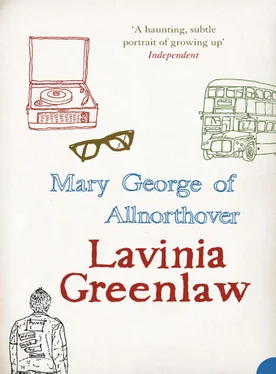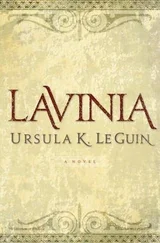Fred Spence’s brother, Charlie, had to get up earlier each day. Once a week, the man from the company came to fill the well beneath his two petrol pumps. He received a fifth less fuel than usual and was given a price to which he painstakingly altered the plastic push-on numbers on the board on his forecourt. The company sent a letter that explained what the government said. Petrol was to be rationed.
Charlie’s bungalow sat behind the garage and he could hear the cars pulling up in a queue before he had got out of bed. As impervious to the heat as he was to the revving engines and tentative then impatient horns, he fried his year-round breakfast. Charlie took his time, stopping to clean his heavy black-framed glasses and to grease back his hair. He was fifty now and while his florid face had settled in folds and pouches, he persisted in the look he had established during a brief period of interest in such things, twenty years before. He sent off for small bottles of unlabelled black liquid by mail order, to dull the grey in his quiff. He wore indestructible synthetic shirts in garish geometric prints that stretched over his sagging breasts and belly. Charlie didn’t worry about the petrol crisis but went by the figures and instructions he was given. He felt no joy in his newfound authority either, simply telling angry customers that ‘The government says …’
When the clock reached seven thirty, he opened his front door. The fetid air of the bungalow, its trapped smells of fried food, cigarettes, sweat and aftershave, lingered on the forecourt most of the day. Charlie blinked, his only response to the sun. It was a Monday morning and the commuters were there, wanting to be gone in time for the city train. Once Charlie had filled their tanks, they relaxed and said good morning as they turned the key in their ignition. It would occur to those who worked in international banking or on the trading floor that Charlie was, of course, in the same game. They made fraternal, esoteric remarks about indices and monopolies. Charlie was polite: ‘The government says …’ He nodded as they accelerated away.
Allnorthover had two bus stops. A brick shelter with wooden seats and a tiled roof sat in a paved square on the edge of the green near Mary’s cottage. There were rarely many people in it as this was the stop for buses going only to Mortimer Tye, where you could do little more than catch a train. A hundred yards along the High Street, on the opposite side of the road, was the stop where you waited to go into Camptown, where Mary went to school. Here, the Council had recently erected a tin shelter, a single wall with a narrow roof and a plastic ledge on which to sit. It was like an open hinge, already tilting as the paving stones had begun to erupt. The pavement was squeezed between the road and the thrusting hedges of the long front gardens that kept the village’s bigger and better houses – square, butter-coloured Georgian villas – out of sight. While the older cottages and shops built on the road had long ago grown dull with dirt from the exhaust fumes of lorries, their windows permanently filmed with dust, the villas gleamed.
The fuel crisis meant that the first three morning services into Camptown were reduced to a single bus that came at eight. Pensioners who usually had to wait till nine o’clock to use their passes were now allowed to travel early and so this morning, six elderly members of Allnorthover’s First Families – Laceys, Hepples, Kettles or Strouds – headed the queue. The women wore nylon gloves and lace-knit cardigans over loose floral dresses made from the same material they used to make stretch covers for their chairs. The men dressed in suits that had been so well cared for they were worn to paper, their creases to glass. They wore caps they had had all their adult lives. Married for fifty years or more, couples like the Kettles rarely looked at or spoke to one another but once in retirement, weren’t often seen apart.
Mr Kettle squinted into the sun at this arrival, a child in old man’s clothes, a singlet and baggy flannel trousers, held up by braces and gathered in a wide leather belt. ‘That a boy or a girl?’
‘It’s the George one.’ Mrs Kettle shifted her weight from hip to hip by way of greeting. Behind the Kettles were some Hepples and Strouds. Spreading themselves just a little, they filled the shelter, taking whatever shade it could afford.
Behind them were the early workers, who usually caught the seven o’clock. They worked the first shift on the industrial estate, making the fruit juice, electrical goods and sausages for which Camptown was known. The early workers were used to being able to sit apart in a bus that arrived empty. Each took a seat by the window and set down beside them a sandwich box, flask and bag of clean overalls. They came home together, too, just before the end of the school day, with their overalls back in their bags with their stains, the bright splashes of pig’s blood and artificial orange, a whiff of something sweet and rotten or sour and citric. Only men worked in the electronics factory. They smelt of nothing and told their wives that the holes in their sleeves that had been eaten away by hydrochloric acid were cigarette burns.
The early workers stood uneasily in single file while beyond them, school children spilled onto the road. The youngest were hot and already bored of pushing each other into hedges or playing chicken with the juggernauts. Two older girls lolled against a fence. Mary tentatively joined them.
‘Says you were followed by a loony, Saturday …’ a Lacey girl began, her doll-face turning sour. She primped her blonde curls. ‘Your type?’ Her mouth, already a tight purse like her mother’s, clasped in a satisfied grin.
Mary laughed and shook her head, half-heartedly. ‘Right nutter.’
Julie Lacey looked her up and down, unconvinced. ‘Student, was he?’ Then she turned suddenly to a plump girl on her other side. ‘Says your uncle, June!’
June Hepple swung her lowered head slowly from side to side, ‘Nothing to do with me …’
Mary looked at June’s quivering cheeks, her vague brown eyes, her frizzy hair pulled back in a tight ponytail. She didn’t know whether she wanted to comfort or shake her. Mary took a book out of her bag and sat down on the kerb to read. Julie Lacey nudged her book with her toe. ‘There’s dirty … dogs and that …’
The buses were old double-deckers with an exhausted and complicated rumble that everyone living along the High Street could recognise. They rarely bothered to leave their houses to catch one until they heard it coming. Mim began barking long before the eight o’clock pulled up, already half full. The Kettles, Hepples and Strouds sat downstairs in the two long seats that had been left empty, as if reserved for them. The early workers made for the stairs but were overtaken by a swarm of children and ended up scattered miserably among them. The three girls, all wanting to smoke, went upstairs too. Julie Lacey cleared a gaggle of younger boys off the front seats with a look.
Tom Hepple had sat up all night, his legs stretched out beyond the end of the child’s bed, his face caught in the mirror on the dressing table opposite him. The quilted nylon cover crackled beneath him. He kept his gaze fixed on his reflection but at the edges of his vision, the rosebuds on the wallpaper throbbed. Above the mirror were shiny posters of musicians and footballers, all eyes and teeth. He had not let Christie turn off the light.
Tom grew tired and could guard against his body no longer. His feet jerked and the fingers of his right hand began to tap rapidly on the bedside table. He became aware of the same acrid breath going in and out of his lungs, getting smaller each time he inhaled. His hand gripped the spindly table which tipped, its contents slipping to the floor: a china shepherdess, an etched glass, a plastic snowstorm and a bowl of sequins. Tom got down on his hands and knees. Nothing was broken, but the sequins embedded themselves in the thick strands of the carpet and were too small anyway for his fingers; the shepherdess’s head came away in his hands. Tom’s chest tightened, his stomach churned and he felt the pressure of his panic and knew that any minute he would lose control. He rushed into the hall where identical doors carried flowery ceramic plaques: ‘Mum and Dad’, ‘Darren and Sean’ and ‘Bathroom’. There was one behind him, too, ‘June’. Tom crept into the bathroom. He tried not to make a mess but he was shaky and all wrong. He rubbed at the wet carpet till the tissue disintegrated and stuck to it.
Читать дальше












